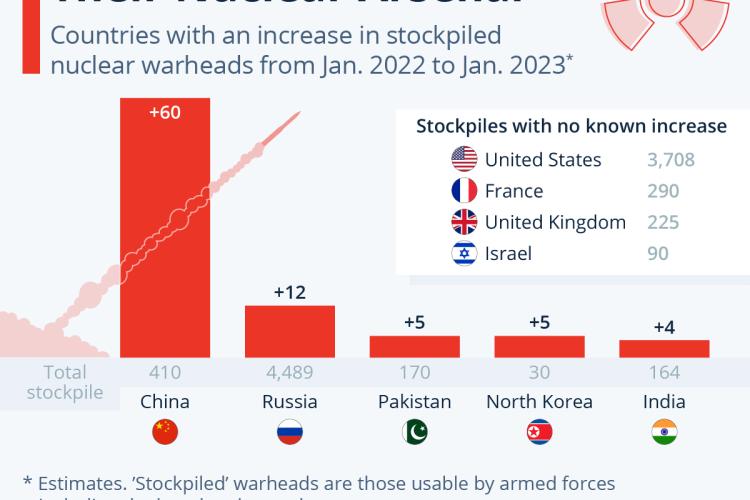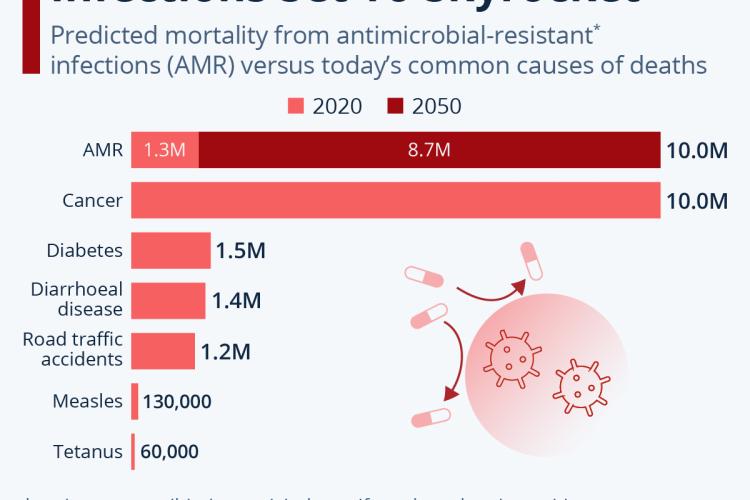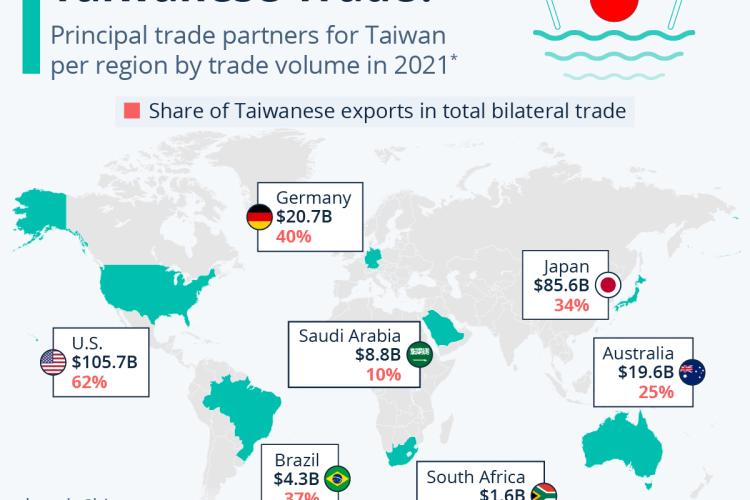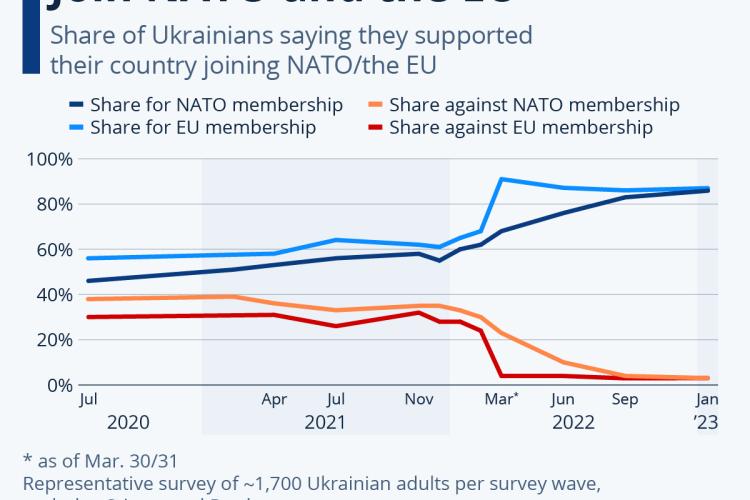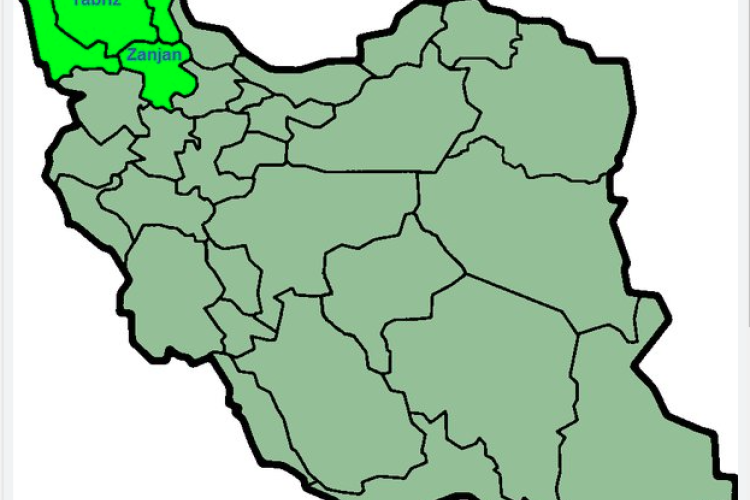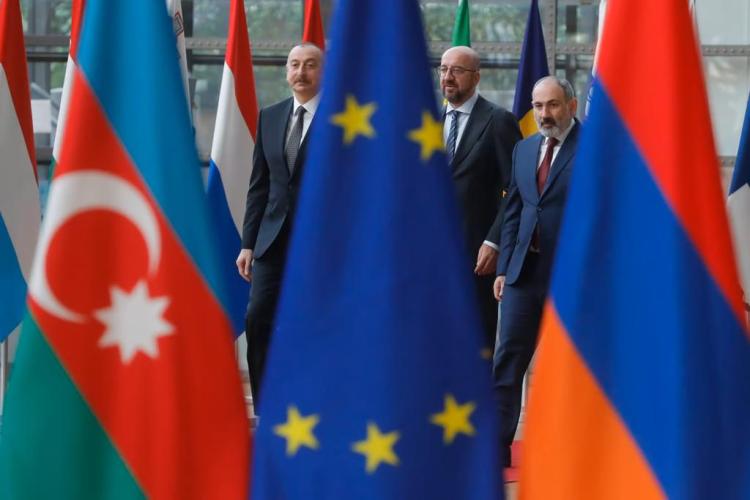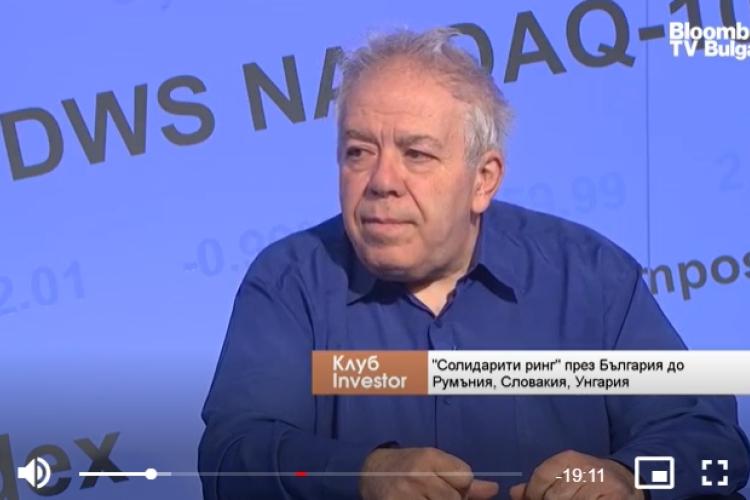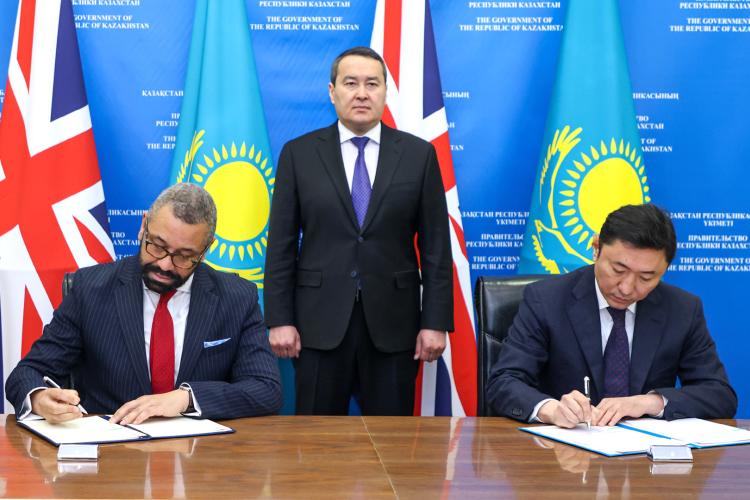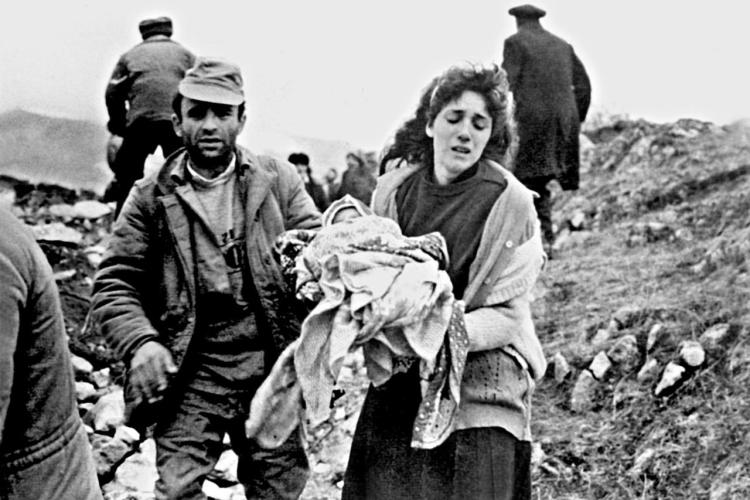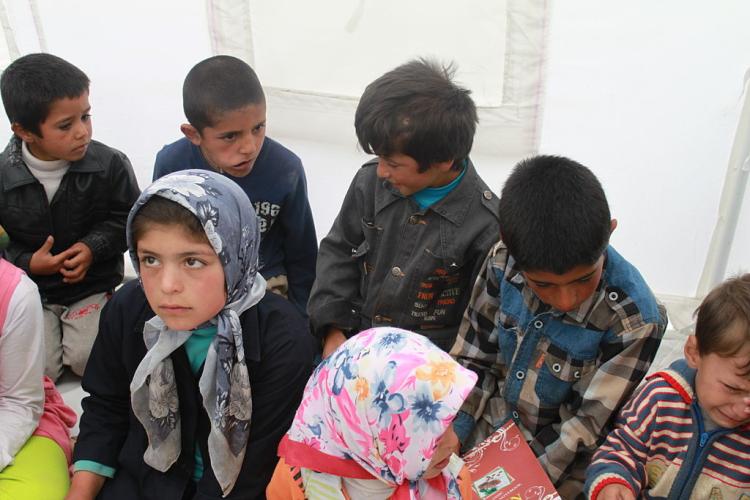The Countries Expanding their Nuclear Arsenal
Released today, the latest figures from Stockholm International Peace Research Institute (SIPRI) reveal an annual increase in the global number of stockpiled nuclear warheads. As this infographic shows, China is at the forefront of this upwards tick, adding an estimated 60 weapons to its collection of deployed or stored nukes between January 2022 and January 2023.
